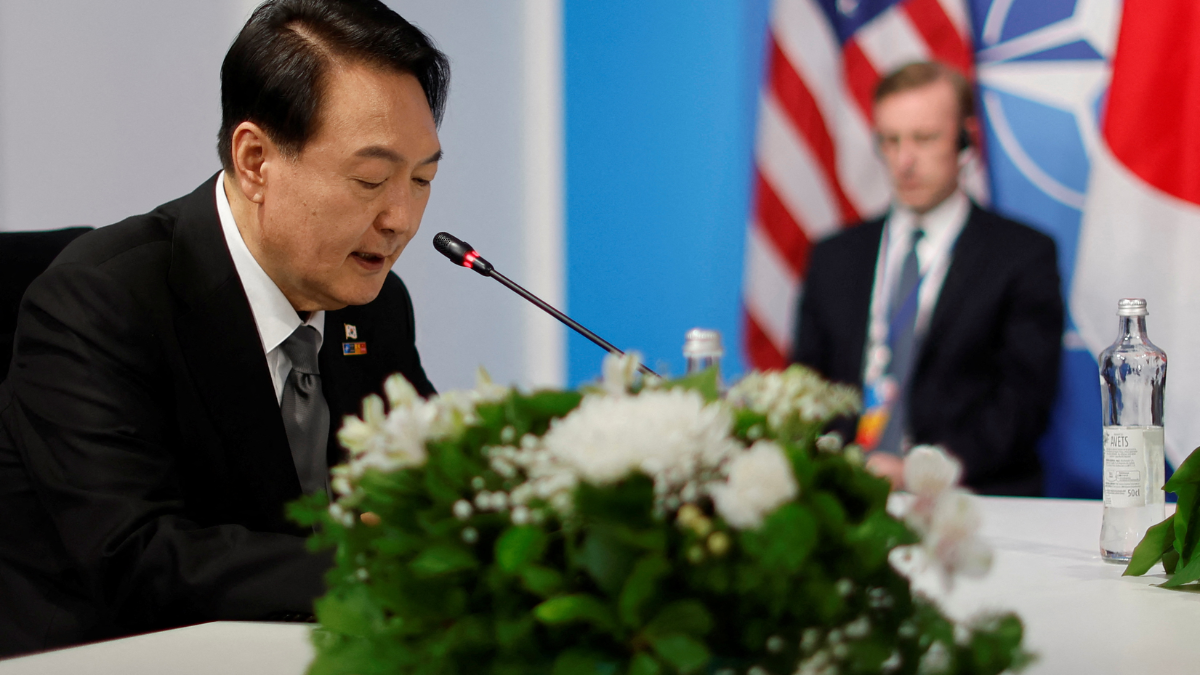
Summary – South Korea’s new President Lee Jae Myung is set to meet US President Donald Trump in Washington to discuss critical trade and defense issues amidst growing regional tensions.,
Article –
South Korea’s newly inaugurated President Lee Jae Myung is set to visit Washington D.C. this month to meet US President Donald Trump. This summit represents a crucial juncture in international relations as the two leaders plan to discuss trade agreements and defense cooperation, with a focus on countering the threat posed by North Korea’s nuclear program.
Background
The meeting takes place against the backdrop of a tense geopolitical environment in East Asia. North Korea continues to advance its nuclear weapons and ballistic missile capabilities despite sanctions. The US, under President Trump’s leadership, has taken a firm stance against North Korean provocations, highlighting the importance of strategic alliances.
President Lee, who recently took office, prioritizes strengthening South Korea’s security framework and ensuring economic stability. His administration aims to enhance defense capabilities while promoting economic growth, reflecting a desire for close collaboration with the United States on shared security and trade issues.
The Global Impact
This summit carries broad significance beyond bilateral concerns:
- Security Signal: Continued US-South Korea cooperation signals determination to North Korea, which may either deter aggression or heighten tensions depending on diplomacy.
- Economic Implications: Trade discussions, including balance and tariffs, could affect global markets, considering South Korea’s role in technology and manufacturing supply chains.
- Regional Influence: Outcomes may influence neighboring powers like China, Japan, and Russia, altering regional power dynamics and diplomatic efforts regarding denuclearization.
Reactions from the World Stage
International responses reflect cautious optimism:
- Global economic partners anticipate positive trade dialogues that might stabilize markets.
- Security experts recognize potential deterrence gains but warn about possible increased military tensions.
- China monitors closely, favoring dialogue over escalation, with potential sensitivities to defense policy shifts.
- Japan likely supports a coordinated allied stance against North Korean threats.
- The European Union and United Nations stress peaceful negotiation and adherence to international law.
What Comes Next?
The outcomes of the Lee-Trump summit could include:
- New trade agreements enhancing economic ties.
- Renewed military commitments to bolster security cooperation.
- Fresh diplomatic initiatives aimed at reducing Korean Peninsula tensions.
This summit may set a precedent for how middle powers like South Korea balance strategic autonomy alongside alliances with major powers such as the US. Its results will significantly shape regional security frameworks and economic partnerships amid evolving geopolitical challenges.
As concerns over nuclear proliferation and global trade shifts persist, the Seoul-Washington dialogue is pivotal. The world will watch closely for signs of collaborative progress or emerging divisions impacting wider international stability.
Will this summit forge a stronger cooperative front against shared threats, or will it expose fissures in a complex security landscape? Only time will tell the lasting effects of this vital diplomatic engagement.

